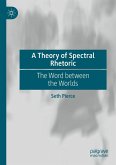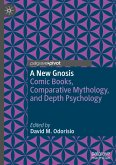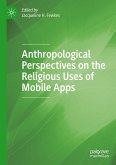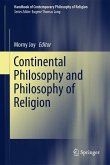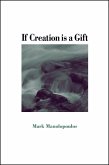This book synthesizes Jacques Derrida's hauntology and spectrality with affect theory, in order to create a rhetorical framework analyzing the felt absences and hauntings of written and oral texts. The book opens with a history of hauntology, spectrality, and affect theory and how each of those ideas have been applied. The book then moves into discussing the unique elements of the rhetorical framework known as the rhetorrectional situation. Three case studies taken from the Christian tradition, serve to demonstrate how spectral rhetoric works. The first is fictional, C.S. Lewis 'The Great Divorce. The second is non-fiction, Tim Jennings 'The God Shaped Brain. The final one is taken from homiletics, Bishop Michael Curry's royal wedding 2018 sermon. After the case studies conclusion offers the reader a summary and ideas future applications for spectral rhetoric.
Bitte wählen Sie Ihr Anliegen aus.
Rechnungen
Retourenschein anfordern
Bestellstatus
Storno


